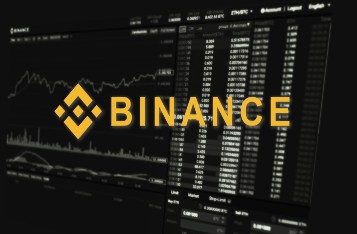Rebeca Moen
Jul 21, 2024 09:51
Binance Research introduces the CPT Framework to analyze crypto market dynamics, focusing on capital, people, and technology as key structural drivers.
Binance Research has introduced a comprehensive framework to analyze the current state of the cryptocurrency market, termed the CPT Framework. This model aims to shed light on both short- and long-term drivers influencing market dynamics, according to Binance Research.
The past few months have been challenging for the crypto markets. Following a rapid rise at the start of the year, the market has been trading within a range. June saw an 11.4% decline in total crypto market capitalization month-on-month, despite some recent relief. As of now, the market remains 14% down from its March peak.
Drivers of Market Weakness
Several market events have contributed to the recent decline in crypto prices. Key among these was the distribution of 140,000 BTC (approximately $9 billion) to Mt. Gox creditors starting July 5. Additionally, the German government transferred 50,000 BTC (~$3.2 billion) to centralized exchanges and market makers between June 19 and July 13. The U.S. government also transferred 3,940 BTC (worth $248 million) to Coinbase Prime on June 26. Despite these large-scale disposals, some mitigating factors suggest that the impact may be short-lived.
Introducing the CPT Framework
Binance’s CPT Framework categorizes structural market factors into three distinct areas: Capital, People, and Technology. Each of these factors plays a crucial role in shaping the long-term health of the crypto market.
1. Capital
The influx of new money into the crypto ecosystem has slowed. This stagnation has resulted in a “Player vs. Player” (PvP) market, where participants compete for returns. Indicators such as stablecoin supply stagnation, a slowdown in funds raised by projects, and outflows from spot BTC ETFs highlight this trend.
Key Takeaways:
- New capital is essential for sustainable market growth.
- Attracting new capital requires appealing to investors across primary, secondary, and traditional finance markets.
- Strong fundamentals and clear narratives are beneficial in attracting and retaining investor interest.
2. People
Market participants have faced challenges in generating sustainable returns. Retail users, institutional investors, project teams, market makers, and regulators have all been impacted by high valuations and sell pressure from token unlocks. Falling trading volumes since March further indicate a challenging environment.
Key Takeaways:
- High valuations and low initial circulating supplies pose long-term structural challenges.
- Increased awareness and research on tokenomics can help mitigate these issues.
- Support for high-quality projects with small to medium market capitalization is crucial for a healthy market environment.
3. Technology
Technological advancements in blockchain and crypto, such as scaling solutions and user-focused developments, are crucial for onboarding new users. However, the focus remains disproportionately on infrastructure projects, which need to be balanced with the development of diverse and innovative dApps.
Key Takeaways:
- Technological innovations attract a broader audience by providing tangible use cases.
- Funding should be redirected to develop user-friendly dApps to amplify the reach of the crypto ecosystem.
Market Outlook
Despite recent challenges, Binance Research remains optimistic about the market’s outlook for the rest of the year. Several upcoming catalysts could propel the industry forward, including potential approvals of spot ETH ETFs, a favorable macro environment with potential interest rate cuts, the U.S. Presidential Election, and the Bitcoin halving event.
Market cycles consist of periods of ups and downs. Pullbacks serve as a healthy reset when there are excesses in the market. Long-term investors might see market corrections as opportunities to add to their portfolios, while risk-averse investors may consider holding their positions.
Image source: Shutterstock














